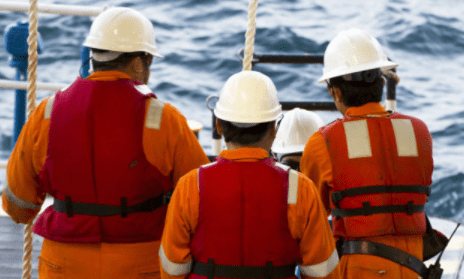After extending seafarers’ contracts at sea twice due to the overall challenges for executing crew changes and keeping seafarers safe from exposure to COVID-19, maritime industry unions and employers have given governments one month to facilitate crew changes.
The deadline was revealed last week following the latest round of talks between the Joint Negotiating Group (JNG) representing employers and the International Transport Workers Federation (ITF) representing seafarers unions and their members.
It comes on the back of a circular issued by the International Maritime Organisation (IMO) detailing a framework of protocols to ensure crew changes can be done safely and as soon as possible.
The protocol is a result of an outcry by the unions and NGOs to end the plight of seafarers who have been stuck at sea much longer than they indented to, impacting their physical and mental health and the ability to carry out their duties.
A staggering 150,000 seafarers need to be changed over to and from the ships which they operate to ensure compliance with international maritime regulations for ensuring safety, crew health and welfare, and the prevention of fatigue.
Given the current situation, JNG and ITF have agreed that the current situation in regards to lack of crew change can no longer continue and agreed not to extend the contracts further.
The two parties agreed to support an implementation period of no longer than 30 days (up until 15 June 2020) so that governments have time to implement the framework of protocols.
Companies agreed to consider, if financially viable and possible, to financially acknowledge every seafarer whose employment contract has expired, but who has continued to work, and, to provide seafarers waiting to be deployed an advance salary payment.
Companies also said that they would provide seafarers with extra bandwidth and internet access, where possible, to be able to communicate with home.
It has also been agreed that when crew change commences, those seafarers who have been on-board the longest will be prioritised and repatriated first regardless of rank.
ITF and the JNG warned the flag states, P&I Clubs, operators, and charterers that, in the event of the Framework of Protocols for Crew Change not taking effect by mid-June 2020, the consequence of stress-related sickness affecting seafarers and their inability to consistently access medical support ashore could negatively impact the commercial viability of ship operations.

